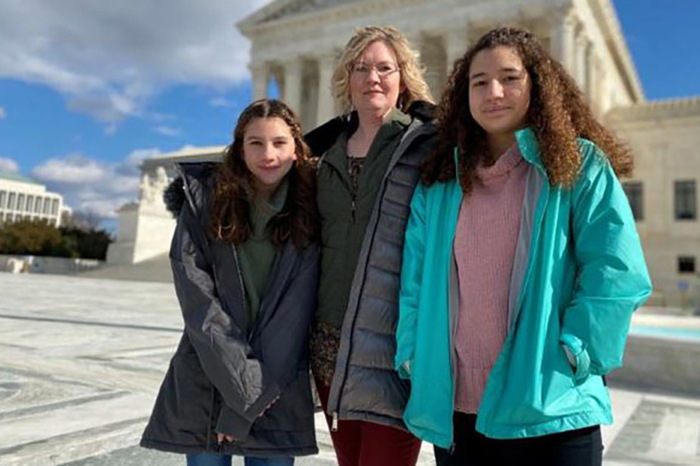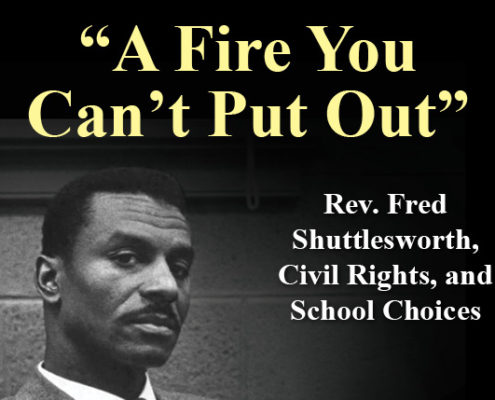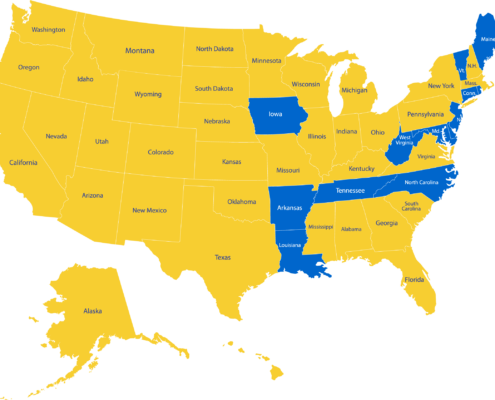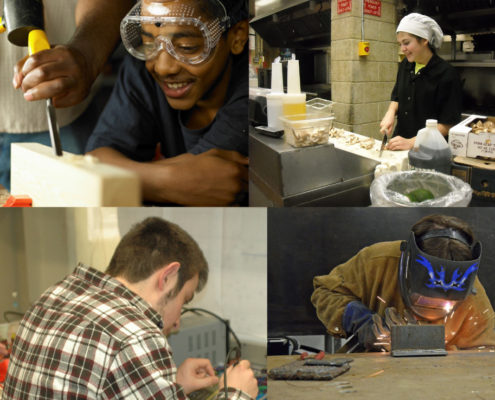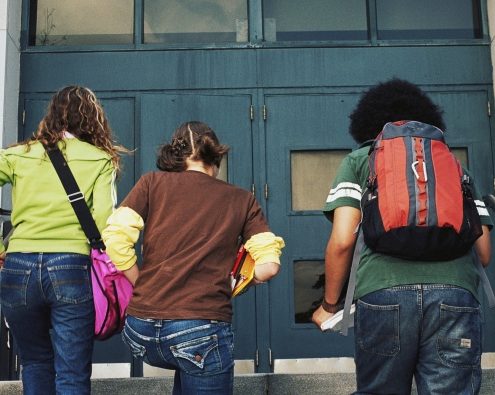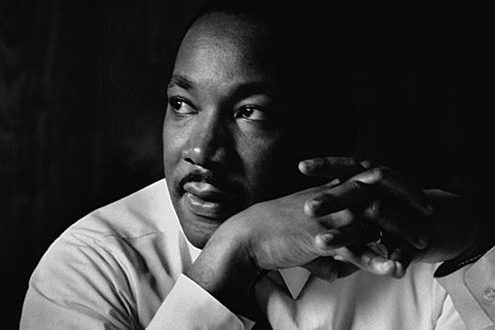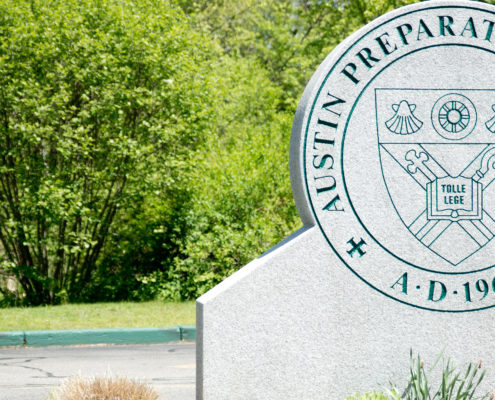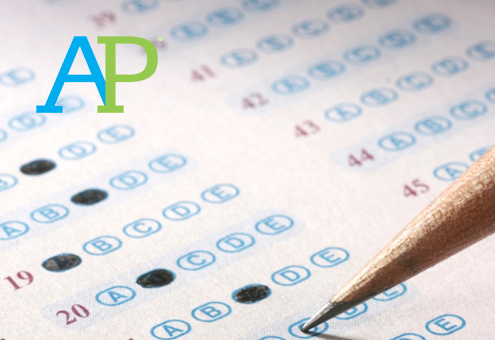An Historic Moment for School Choice
Today, the Supreme Court of the United States (SCOTUS) will hear oral arguments in the potentially landmark case, Espinoza v. Montana Department of Revenue, which challenges a state constitutional amendment marked by religious bias. Pioneer Institute filed amici curiae briefs both urging the SCOTUS to hear the case, and then on behalf of appellant, Kendra Espinoza (pictured above with her two daughters), after the Court decided to hear it. Pioneer co-hosted a November forum at Harvard University with Ms. Espinoza, her daughters, and her attorney, Erica Smith of the Institute for Justice.
The state amendment in question is a so-called, 19th-century “Anti-Aid,” or Blaine amendment. These amendments prohibit public resources from flowing to individuals to send their children to religiously-affiliated schools, and were designed to prevent Catholics and immigrants from receiving the kind of education that would enable them to become successful.
In the Espinoza case, Kendra Espinoza, a suddenly-single mom, sought a better education for her daughters. In public school, one daughter was bullied and the other struggled in her classes. Both would later thrive in the parochial school Kendra chose.
Ms. Espinoza’s decision to send her daughters to Stillwater Christian School caused her family financial difficulties. Her access to needs-based state education tax credit-funded scholarships for her children was eliminated after the Montana Supreme Court struck down the state’s legislatively established education tax credit program. The basis for the Montana court’s decision was the state’s 130-year-old Blaine amendment.
Massachusetts is one of 38 states with Blaine amendments. The Commonwealth was among the first states to adopt such an amendment, and it is generally considered the most restrictive in the country.
The first of the two Anti-Aid amendments to the Massachusetts Constitution was the work of the virulently anti-Catholic Know-Nothing Party, which came to power in the state elections of 1854, after a wave of Catholic immigrants arrived in the Commonwealth during the Irish Potato Famine. The Bay State adopted a second Anti-Aid amendment to its Constitution in 1917.
While the money for scholarships the Espinoza family accessed came from private sources, the Montana Innovative Education Program Credit provided donors to the program with tax credits for their contributions. According to the Montana Supreme Court, the Blaine amendment prevented Ms. Espinoza’s children from using state education scholarship funds to access a religiously-affiliated school.
For well over a decade Pioneer Institute has highlighted this important legal and educational topic through research, events and op-eds. In 2018, Pioneer produced a 30-minute documentary, “Big Sacrifices, Big Dreams: Ending America’s Bigoted Education Laws,” that chronicles the struggles of four families in Massachusetts, Michigan, and Georgia, all states with Blaine amendments, to send their children to parochial schools.
Learn more about how you can help end bigoted education laws!
Related Posts

